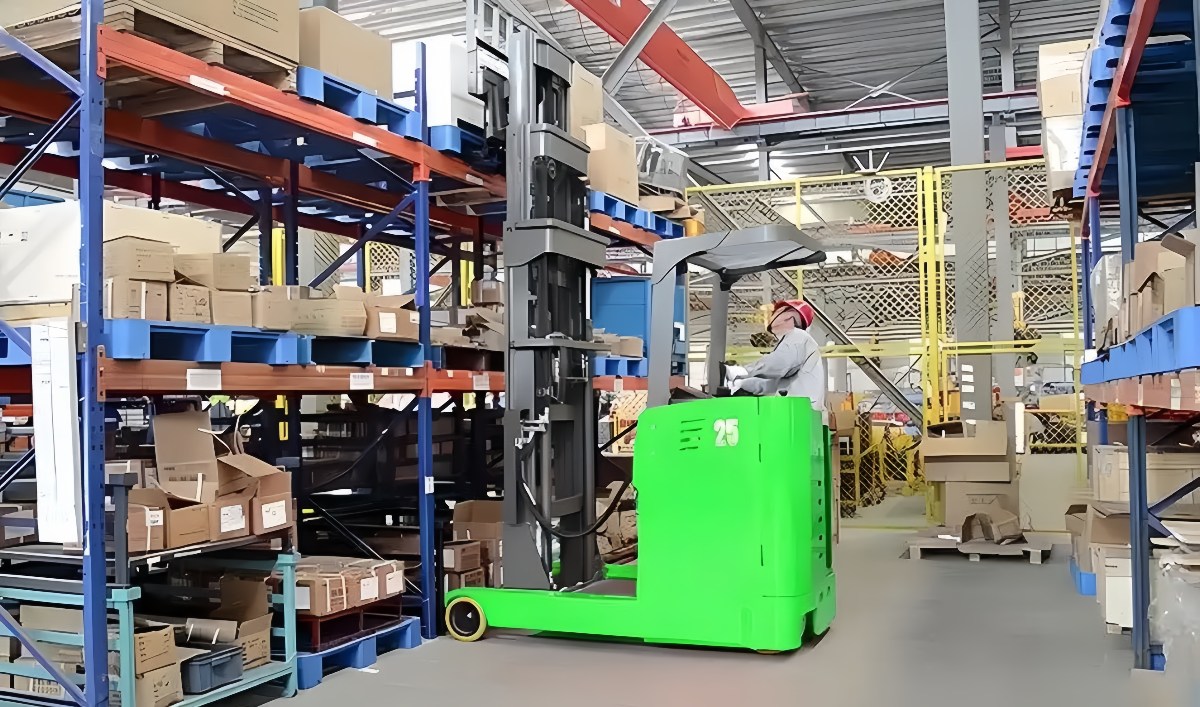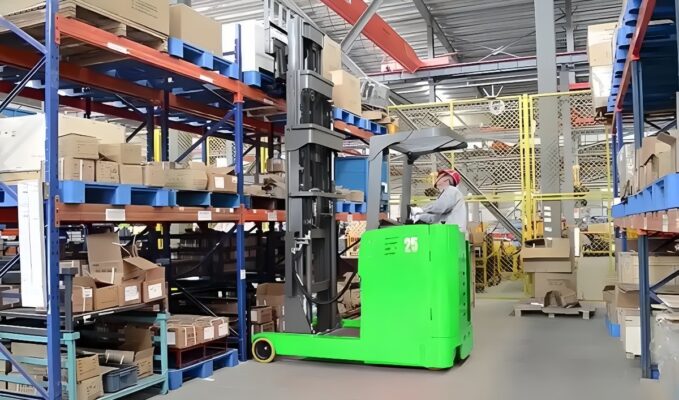LiFePO4 Battery
Electric Pallet Jack Battery: Lithium vs. Lead-Acid
Table of Contents
Lithium vs. Lead-Acid: Which Electric Pallet Jack Battery Should You Choose?
In today’s logistics and warehousing industry, electric reach trucks have become indispensable due to their flexibility and efficiency. The electric pallet jack battery, as the core power source, directly impacts forklift performance, operating costs, and environmental sustainability. At present, the market mainly relies on two types of batteries: lead-acid and lithium-ion. This article provides a detailed comparison of these two systems to help businesses make informed decisions.
Understanding Electric Pallet Jack Power Systems
The battery system is the heart of an electric reach truck. Choosing the right electric pallet jack battery can significantly improve operational efficiency, extend equipment lifespan, and reduce total ownership costs.
Lead-Acid Battery: Cost-Effective but Limited
Advantages of Lead-Acid Batteries
-
Mature technology and lower cost: Lead-acid batteries have been widely used for decades, offering affordability that appeals to cost-sensitive users.
-
Simple maintenance: Routine tasks such as checking electrolyte levels and refilling distilled water keep overall maintenance costs relatively low.
Challenges of Lead-Acid Batteries
-
Environmental concerns: Containing heavy metals such as lead, these batteries can pose pollution risks if not disposed of properly.
-
Shorter lifespan: Typically lasting less than two years, with fewer than 300 full charge cycles, lead-acid batteries require frequent replacement, increasing long-term costs.
Lithium-Ion Battery: Efficient and Long-Lasting
Benefits of Lithium Batteries
-
High energy density and longer lifespan: Lithium batteries store more energy in the same size, last 4–5 years, and often exceed 500 charge cycles.
-
Fast charging and high efficiency: They recharge in just 1–2 hours with an efficiency rate above 97%, compared to 8–12 hours and ~80% for lead-acid.
-
Eco-friendly and maintenance-free: Free from toxic materials, lithium batteries require no water refills or frequent servicing, making them both cleaner and easier to manage.
Safety Considerations
Although lithium batteries are generally safe, improper use or overcharging can create risks. To ensure safety, operators should follow best practices and use appropriate protection systems.
Side-by-Side Battery Comparison
| Feature | Lead-Acid Battery | Lithium-Ion Battery |
|---|---|---|
| Initial Cost | Low | High |
| Lifespan | < 3 years | 8–10 years |
| Charge Cycles | < 800 | > 3500 |
| Charging Time | 8–12 hours | 1–2 hours |
| Maintenance | Regular upkeep | Maintenance-free |
| Environmental Impact | Higher risk | Eco-friendly |
Choosing the Right Battery for Your Business
Both technologies have clear advantages and drawbacks:
-
Lead-acid batteries remain attractive for companies with limited budgets or less stringent sustainability goals.
-
Lithium-ion batteries deliver superior efficiency, longer lifespan, fast charging, and eco-friendly performance, making them ideal for modern, high-demand operations.
Ultimately, selecting the right electric pallet jack battery requires weighing your operational needs, budget constraints, and environmental priorities. For businesses aiming to optimize performance and sustainability, lithium-ion batteries are the stronger choice.




Featured Forklift LiFePo4 Battery
80V Forklift Battery
Forklift Lithium-ion Battery 80v 404Ah for Toyota 7FB30-7FBJ35
48V Forklift Battery
Forklift Lithium Battery 51.2v 404Ah for Still FM-X
48V Forklift Battery
48V 519Ah Lifepo4 Lithium Battery for Heli CPD20/25-GB2/GD Forklift
80V Forklift Battery
80V 404Ah Lifepo4 Lithium Battery for CPD30/35-G1/G3 Forklift
80V Forklift Battery
80V 560AH Lifepo4 Lithium Battery for HELI CPD35-GD2
80V Forklift Battery
80V 600Ah LiFePO4 Lithium Battery for NICHIYU FBC25/30P Forklift
48V Forklift Battery
48V 201Ah Lifepo4 Lithium Battery for NICHIYU FBRM13H-70 Reach Truck
48V Forklift Battery
48V 225Ah Lifepo4 Lithium Battery for HYUNDAI 10/13BR Forklift